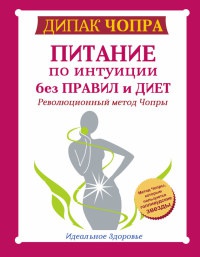Книга Тело знает лучше. Методика интуитивного питания для комфортного веса - Марайке Аве
Читать книгу Тело знает лучше. Методика интуитивного питания для комфортного веса - Марайке Аве полностью.
Шрифт:
-
+
Интервал:
-
+
Закладка:
Сделать
Перейти на страницу:
Перейти на страницу:
Книги схожие с книгой «Тело знает лучше. Методика интуитивного питания для комфортного веса - Марайке Аве» от автора - Марайке Аве:
Комментарии и отзывы (0) к книге "Тело знает лучше. Методика интуитивного питания для комфортного веса - Марайке Аве"








